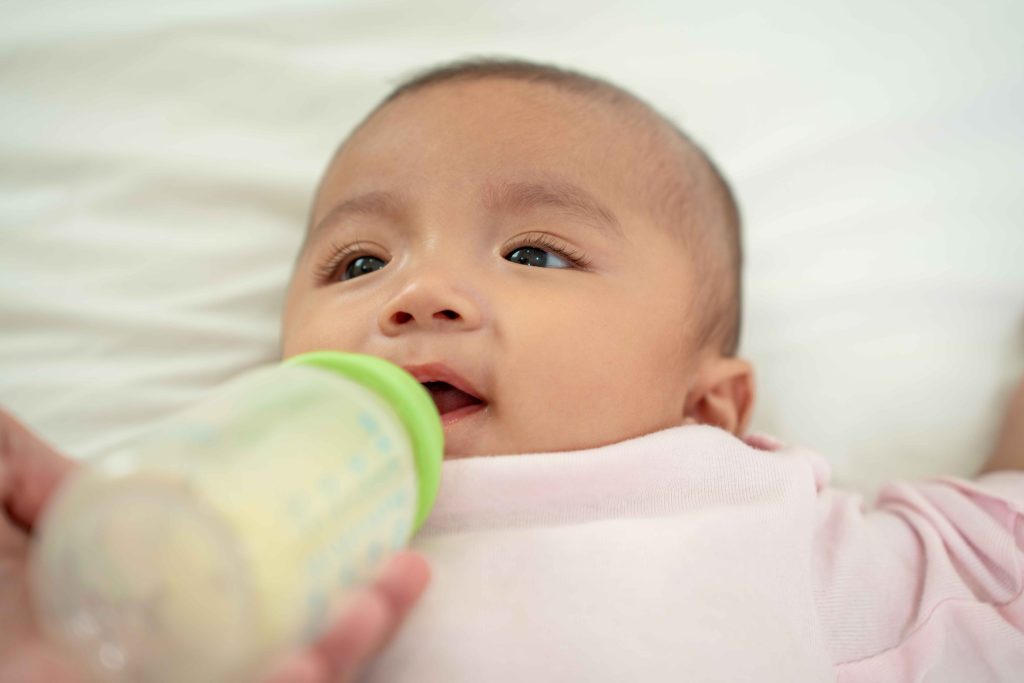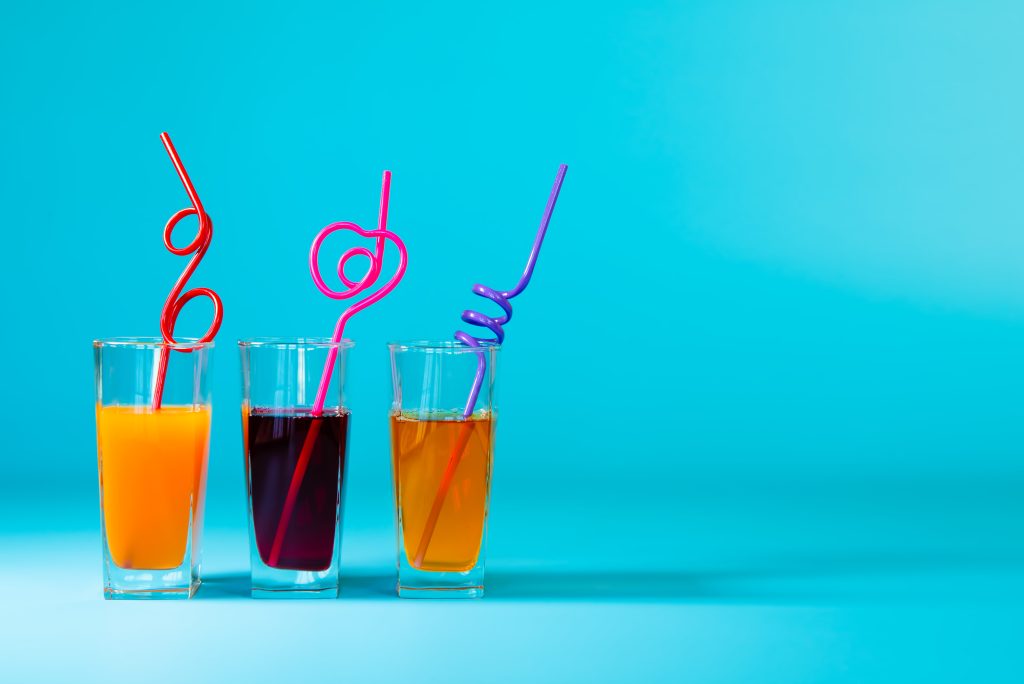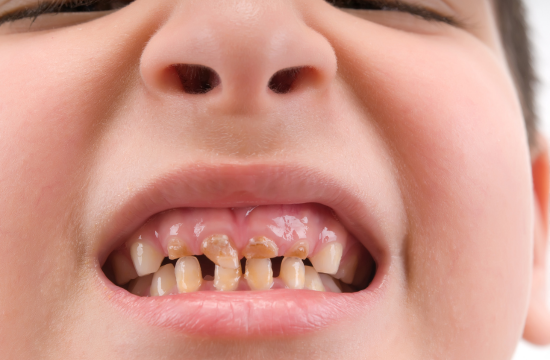How to prevent baby bottle tooth decay| bottle rot
Do you want to prevent baby bottle tooth decay? Have you noticed early-age tooth decay in your kid? Baby bottle tooth decay or bottle rot is a condition in which kids’ teeth start falling at an early age. It is common in kids; about 23 percent of kids ages between 2 and 5 years experience bottle tooth decay.
In today’s fast-paced world, exhausted parents often give their children milk bottles for their comfort. It seems a good idea to leave your kid with a milk bottle to handle other tasks, but it has various drawbacks. If you also leave your kid with a bottle, then let me tell you that something as innocent as letting your baby fall asleep with a bottle could lead to trouble.
When you give a milk bottle to your little one, it leads to bottle rot. It happens because of prolonged exposure of kids to milk bottles with sugary drinks. So, parents often ask how to prevent bottle tooth decay. If you want to avoid bottle tooth decay in your kid, keep reading this article. We will guide you about the causes of bottle tooth decay and how to prevent it in 2023.
Symptoms of baby bottle tooth decay
What are the symptoms of bottle rot teeth? The baby bottle tooth decay signs appear on the gumline of kids’ front teeth. You will see white spots on your baby’s teeth.
But sometimes, it becomes hard to find these symptoms in the baby’s teeth because the size of the kid’s teeth is small. Here are some common symptoms:
- Dark brown spots on teeth
- Toothache
- Tooth cavities
- Swollen gums
- Bad breath
- Tooth sensitivity
- Mild fever
Causes of baby bottle tooth decay
There are multiple causes of baby bottle tooth decay, but the major reason for this is letting your kid fall asleep with a bottle in his or her mouth. When kids fall asleep with a bottle for months, it provides a favorable environment to the bacteria that cause bottle rot or early tooth decay.

Additionally, if a kid drinks formula milk, juices, sugar syrup, honey, etc., with a bottle for the long term, it will cause baby bottle tooth decay. Because such liquid clings to your child’s teeth and bacteria produced on your teeth, these bacteria further produce acid that attacks your kid’s teeth and leads to bottle rot.
Moreover, poor hygiene is also a cause of baby bottle tooth decay. Kids aged 5 to 6 years do not pay much attention to teeth health; they don’t brush their teeth regularly, so they are more prone to baby bottle tooth decay.
In some kids, baby bottle tooth decay occurs due to genetics; their enamel layer gets affected easily, and teeth start falling at an early age.
How to prevent bottle rot teeth?
Baby bottle tooth decay is not normal; it harms your kid’s teeth and causes other oral issues. It is important to prevent baby bottle tooth decay.
Here are some easy preventative techniques to avoid baby bottle tooth decay, such as:
- Don’t give milk bottles overnight
Some mothers give milk bottles to kids overnight, which is a major cause of baby bottle tooth decay. Until they keep a bottle in their mouth, bacteria keep eating the upper layer of the teeth, and teeth start falling. So, as a mother, it’s your duty not to give your kid a milk bottle for longer.
- Avoid sugary drinks
Sugary drinks like fruit juices and sweetened milk are unhealthy for kids, leading to baby bottle tooth decay. Because bacteria live on these sugary substances and produce acids that affect kids’ teeth and increase the risk of baby bottle tooth decay. So don’t give juices to your kids, and do not add sugar to their milk.

- Clean kid’s mouths after feeding
After feeding your little ones, wipe your kid’s gum with soft washcloths. Dry off your kid’s mouth to prevent the production of bacteria. Also, clean that area of the mouth which has no teeth.
- Brush your kid’s teeth
Brushing teeth regularly is healthy; make it a habit for your kid to clean teeth after eating or drinking something. When your kid’s teeth start growing, teach them to clean them without toothpaste because regular toothpaste is unsafe for small kids’ teeth, so avoid paste.
- Brush with fluoride-rich water
Toothpaste is not recommended for kids below 8 years. But kids need fluoride to make teeth healthy. That’s why you provide your kid with fluoride-rich water; for this, you can set a fluoride supply connection with the water supply.
- Use pacifier wisely
Kids love pacifiers, but always give them pacifiers for a short time. Parents dip pacifiers in sugary liquid to make them more attractive but don’t do this because it will cause tooth decay.
Best Treatment for baby bottle tooth decay?
Are you looking for the best treatment for baby bottle tooth decay? Treatment of bottle rot teeth available via you can treat your kid’s baby bottle tooth decay. Here are easy options for getting rid of baby bottle tooth decay:
- Fluoride treatment
Fluoride treatment is the best option to reverse baby bottle tooth decay in kids. When you see your teeth decay, you should use fluoride gel because fluoride gel is an effective and fast treatment to reverse your kid’s tooth decay.
- Filling cavities
Filling cavities is also an option to cure baby bottle tooth decay. This treatment is useful for the early signs of baby bottle tooth decay.
- Dental extraction
Dental extraction is a treatment option when your kid’s tooth decay becomes extreme. Then, the dentist suggests dental extraction, which is painful, but the experts did this after using anesthesia.
Conclusion
Baby bottle tooth decay is common in kids below the age of 8 years; kids experience bottle rot teeth because of drinking too much bottled milk or sugary drinks. When kids keep the bottle inside their mouth the whole night for a longer period, it leads to baby bottle tooth decay. There are different treatment options to cure it, but the best practice is to prevent it.
So don’t give bottles to your kids overnight; clean their mouths, use fluoride, and brush their teeth regularly. If you follow these tips, your kid’s teeth will be safe from the bottle rot.

